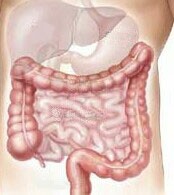Findings show increased odds for patients undergoing nonelective colorectal resection
THURSDAY, Jan. 22, 2015 (HealthDay News) — For patients undergoing nonelective colorectal resection, postoperative nonsteroidal anti-inflammatory drug (NSAID) administration is associated with increased odds of anastomotic leaks, according to a study published online Jan. 21 in JAMA Surgery.
Timo W. Hakkarainen, M.D., from the University of Washington Medical Center in Seattle, and colleagues examined the correlation between postoperative NSAID administration and anastomotic complications. Data were included from a retrospective cohort of 13,082 patients undergoing bariatric or colorectal surgery at 47 hospitals from 2006 through 2010; 24.1 percent received NSAIDs beginning within 24 hours after surgery.
The researchers found that the overall 90-day rate of anastomotic leaks was 4.3 percent for all patients (4.8 and 4.2 percent in the NSAID and non-NSAID group, respectively; P = 0.16). NSAIDs correlated with an increased risk of anastomotic leak after risk adjustment (odds ratio, 1.24; P = 0.04). This correlation was specific to nonelective colorectal surgery, with a leak rate of 12.3 percent in the NSAID group versus 8.3 percent in the non-NSAID group (odds ratio, 1.70; P = 0.01).
“To determine the role of NSAIDs in colorectal surgery, future evaluations should consider specific formulations, the dose effect, mechanism, and other relevant outcome domains, including pain control, cardiac complications, and overall recovery,” the authors write.
Copyright © 2015 HealthDay. All rights reserved.








